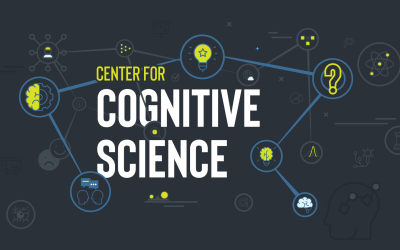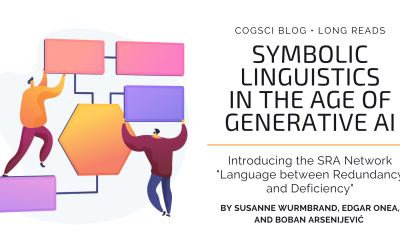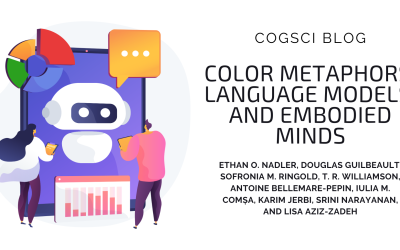By Michelle Rivers, Michael Baranski, Brendan Schuetze, & Mona Anchan
Why did you decide to pursue cognitive science? The CSS blog team recently asked for some graduate students’ perspectives on this question. Here’s what they told us.
Michelle Rivers, 4th year graduate student at Kent State University:
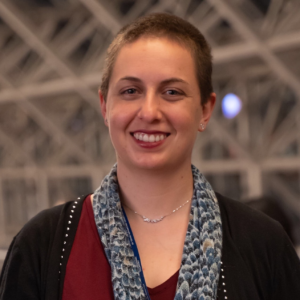 I find the challenge of learning enthralling. I view my own ignorance as a catalyst for making new discoveries, and my misconceptions as an opportunity to reexamine even my most persistent beliefs. I realize, however, that not everyone possesses the same enthusiasm for learning – many become discouraged by the process because they are not equipped with the right tools to help them succeed.
I find the challenge of learning enthralling. I view my own ignorance as a catalyst for making new discoveries, and my misconceptions as an opportunity to reexamine even my most persistent beliefs. I realize, however, that not everyone possesses the same enthusiasm for learning – many become discouraged by the process because they are not equipped with the right tools to help them succeed.
We’re all expected to know how to learn to make it through school (and beyond!) But most of us are never explicitly taught what learning techniques work best. This means a lot of us teach ourselves how to learn, and we can develop incorrect beliefs about what works well and what doesn’t work so well. For example, have you ever completed an exam feeling confident, only to find out you didn’t remember as much as you thought you did? Experiences like these can be discouraging. I decided to pursue cognitive science to find ways to improve student achievement and motivation, with a particular focus on closing the gap between what students think they know and what they actually know.
Michael Baranski, 5th year graduate student at Kent State University:
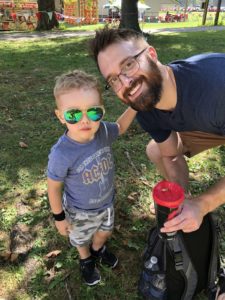 My best guess as to why I pursued cognitive science is that it brings together some of my core interests and my desire for an engaging career. I suppose it began with my high school friends and our philosophy discussions during workouts; we pondered, questioned, and debated who and what we (humans) are. During my undergraduate years, I bought my Catholic grandmother a book on mindfulness meditation written by a Buddhist monk; the book’s focus on present, open-mindedness reminded me of her despite the cultural differences between her and the author. She never read the book so I finally did, and after practicing its methods I was amazed by the combination of personal and in-text empirical support for the benefits of cultivating a mindful mind. Following college, I began teaching high school Civics & Economics. My interactions with students spurred a strong interest in understanding what shapes one’s mind, goals, beliefs, memories, and behaviors, and how to use this knowledge to improve our personal and professional outcomes. After trying an alternative career, I began to really consider what an engaging and rewarding profession would be for me. I weighed the pros and cons of several options, and found that teaching and researching cognitive science blended many things that I enjoyed and desired. I could answer questions and share understanding of complex and interesting phenomena related to human thought and experience, helping to better inform who and what we (humans) are. Specifically, I could immediately engage in researching the benefits of mindfulness practice, such as how clear and stable attention may benefit cognition and learning. I believe these are the reasons why I pursued cognitive science and I am currently very happy that I did!
My best guess as to why I pursued cognitive science is that it brings together some of my core interests and my desire for an engaging career. I suppose it began with my high school friends and our philosophy discussions during workouts; we pondered, questioned, and debated who and what we (humans) are. During my undergraduate years, I bought my Catholic grandmother a book on mindfulness meditation written by a Buddhist monk; the book’s focus on present, open-mindedness reminded me of her despite the cultural differences between her and the author. She never read the book so I finally did, and after practicing its methods I was amazed by the combination of personal and in-text empirical support for the benefits of cultivating a mindful mind. Following college, I began teaching high school Civics & Economics. My interactions with students spurred a strong interest in understanding what shapes one’s mind, goals, beliefs, memories, and behaviors, and how to use this knowledge to improve our personal and professional outcomes. After trying an alternative career, I began to really consider what an engaging and rewarding profession would be for me. I weighed the pros and cons of several options, and found that teaching and researching cognitive science blended many things that I enjoyed and desired. I could answer questions and share understanding of complex and interesting phenomena related to human thought and experience, helping to better inform who and what we (humans) are. Specifically, I could immediately engage in researching the benefits of mindfulness practice, such as how clear and stable attention may benefit cognition and learning. I believe these are the reasons why I pursued cognitive science and I am currently very happy that I did!
Brendan Schuetze, 2nd year graduate student at the University of Texas at Austin:
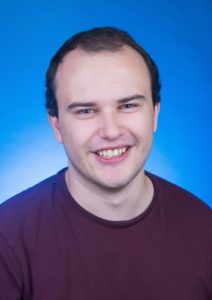 I am drawn to cognitive science because cognition underlies what it means to be — both socially and phenomenologically — human. More particularly, I first became interested in the study of human memory during early undergraduate coursework concerning cognitive biases. This introduction to cognitive biases reshaped my earlier conceptions of people as rational actors and transformed how I understand the social world around me. With my current research on metacognition, I am similarly captivated with the disconnects between perception of our own cognitive processes, such as memory and learning, and the true accuracy and stability thereof. Perception does not always equal reality! It also never hurts that my research has not only theoretical importance, but also practical applications in far-ranging fields from education to courtroom practice.
I am drawn to cognitive science because cognition underlies what it means to be — both socially and phenomenologically — human. More particularly, I first became interested in the study of human memory during early undergraduate coursework concerning cognitive biases. This introduction to cognitive biases reshaped my earlier conceptions of people as rational actors and transformed how I understand the social world around me. With my current research on metacognition, I am similarly captivated with the disconnects between perception of our own cognitive processes, such as memory and learning, and the true accuracy and stability thereof. Perception does not always equal reality! It also never hurts that my research has not only theoretical importance, but also practical applications in far-ranging fields from education to courtroom practice.
Mona Anchan, 3rd year graduate student at the University of Alabama:
How people think and learn has always been fascinating to me, but even more fascinating is how our own theoretical study and scientific processes have rendered us far from natural in many of our discourses. It almost seems that there are multiple levels of knowing, and at some levels even though we may know something cognitively, we don’t really practice it. Not exercising even when we know that exercise is good for our body and mind is a perfect example of this disconnect between cognitive knowing and practical application. The reverse is equally true because we know so much through lived-in and shared experiences, and yet we know so little about the HOW and the WHY which is often captured in controlled experiments and empirical studies; and we may never truly discover these mechanisms in these restrictive environments. And when we look closer, this disconnect is mirrored in so many aspects of our lives, including the research-practice gap that is constantly discussed with little actionable outcomes, but also in our human struggle to lead healthy, balanced, and fulfilling lives. It seems to me, in my limited knowledge and experience, that balance or homeostasis is often hard to achieve, no matter our goal or purpose in life.
 Then there is the matter of incomplete transitions in our thinking and doing. Even though we’ve historically shifted the title of ‘the most important organ’ from the heart to the brain centuries ago, many of our institutional practices don’t often reflect that, which becomes keenly evident in messages we pass down to our younger generations unconsciously or through outdated practices at school and work. If we know most teenagers like to sleep in, why do we expect them to learn and perform at hours their brain function is not optimal? If we know quality of learning is a function of cognition, then why is seat time the metric used to gauge success that focuses on physical health, which is not always directly connected to the quality of one’s mental health? If the goal is to raise quick thinkers and problem-solvers to handle tasks that can’t be relegated to AI, why then do we train students in all walks of life to be knowledge acquirers instead of teaching them to be comfortable with failure and work on projects and in teams? And, if we dig a little more in areas other than formal schooling, we are sure to uncover similar disconnects between what we do and what may be effective.
Then there is the matter of incomplete transitions in our thinking and doing. Even though we’ve historically shifted the title of ‘the most important organ’ from the heart to the brain centuries ago, many of our institutional practices don’t often reflect that, which becomes keenly evident in messages we pass down to our younger generations unconsciously or through outdated practices at school and work. If we know most teenagers like to sleep in, why do we expect them to learn and perform at hours their brain function is not optimal? If we know quality of learning is a function of cognition, then why is seat time the metric used to gauge success that focuses on physical health, which is not always directly connected to the quality of one’s mental health? If the goal is to raise quick thinkers and problem-solvers to handle tasks that can’t be relegated to AI, why then do we train students in all walks of life to be knowledge acquirers instead of teaching them to be comfortable with failure and work on projects and in teams? And, if we dig a little more in areas other than formal schooling, we are sure to uncover similar disconnects between what we do and what may be effective.
I have been fascinated with this disconnect and consequently obsessed with actually doing something, anything, so our progress through life (development, daily living, school, work, life goals, etc.) incorporates our understanding of the brain, the mind, and how we think and learn (education). That is why I decided to pursue cognitive science. If I somehow came across a dusty lamp with magical inhabitants, I’d ask for a world where cognitive science is consumed like food by all…a world where we may not all be 5-star chefs, but knowing, understanding, and practicing the basics of cooking was second nature.
Michelle (@meta_michelle), Michael, Brendan (@BA_Schuetze), and Mona (@mona_anchan) all write for Cogbites.org, a blog devoted to translating scientific research about the study of mental processes to the general public. Follow them on Twitter: @cogbites
